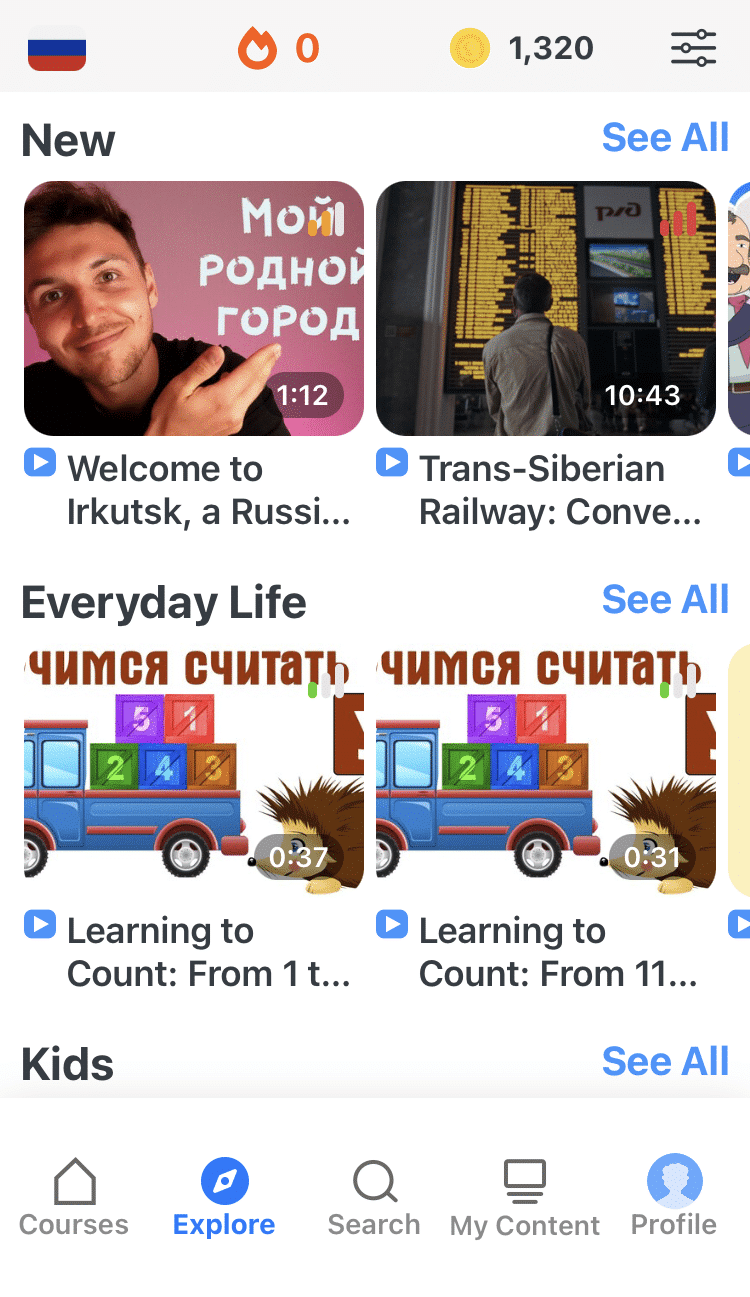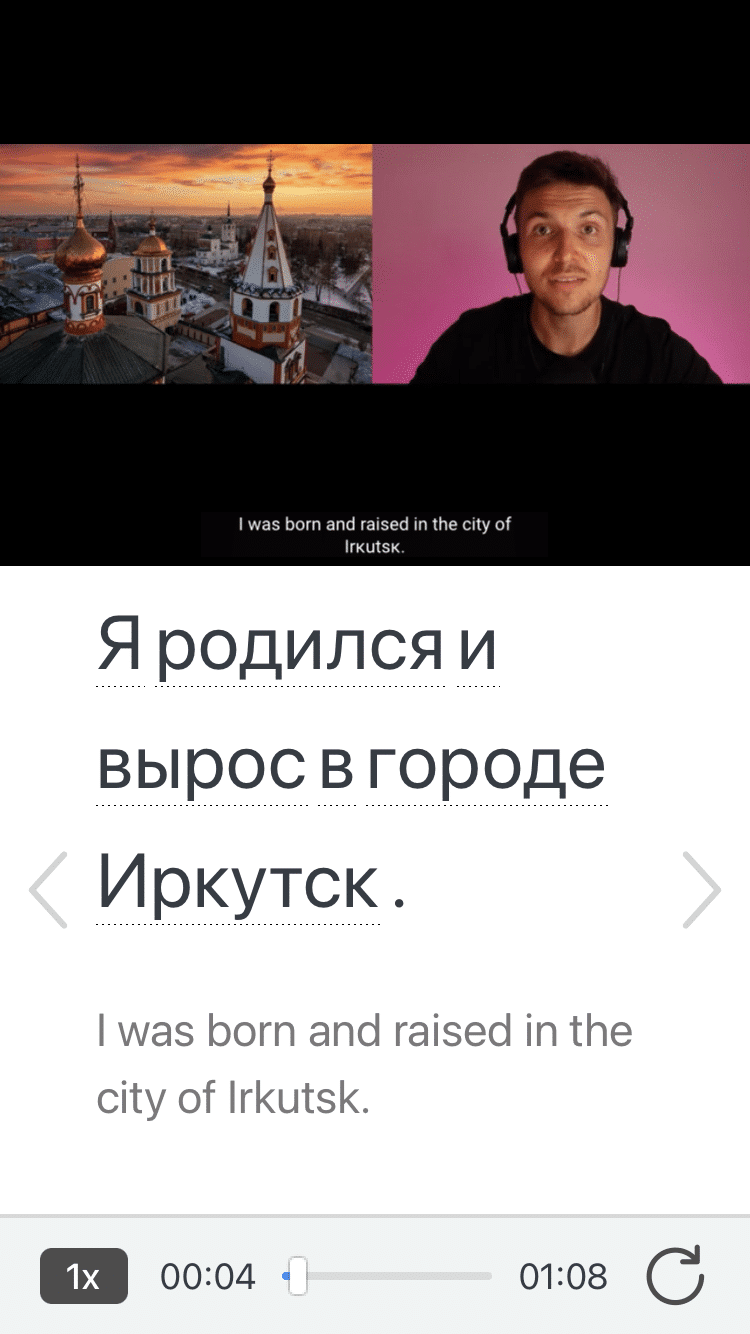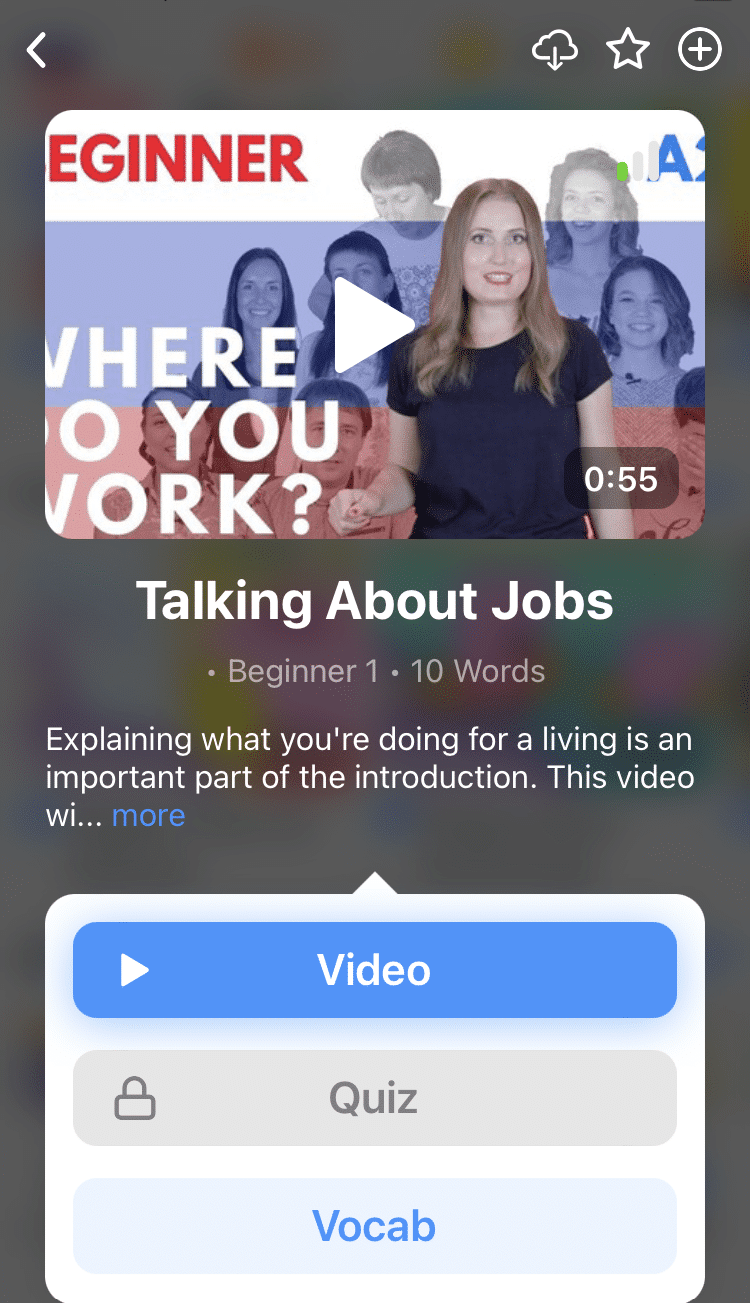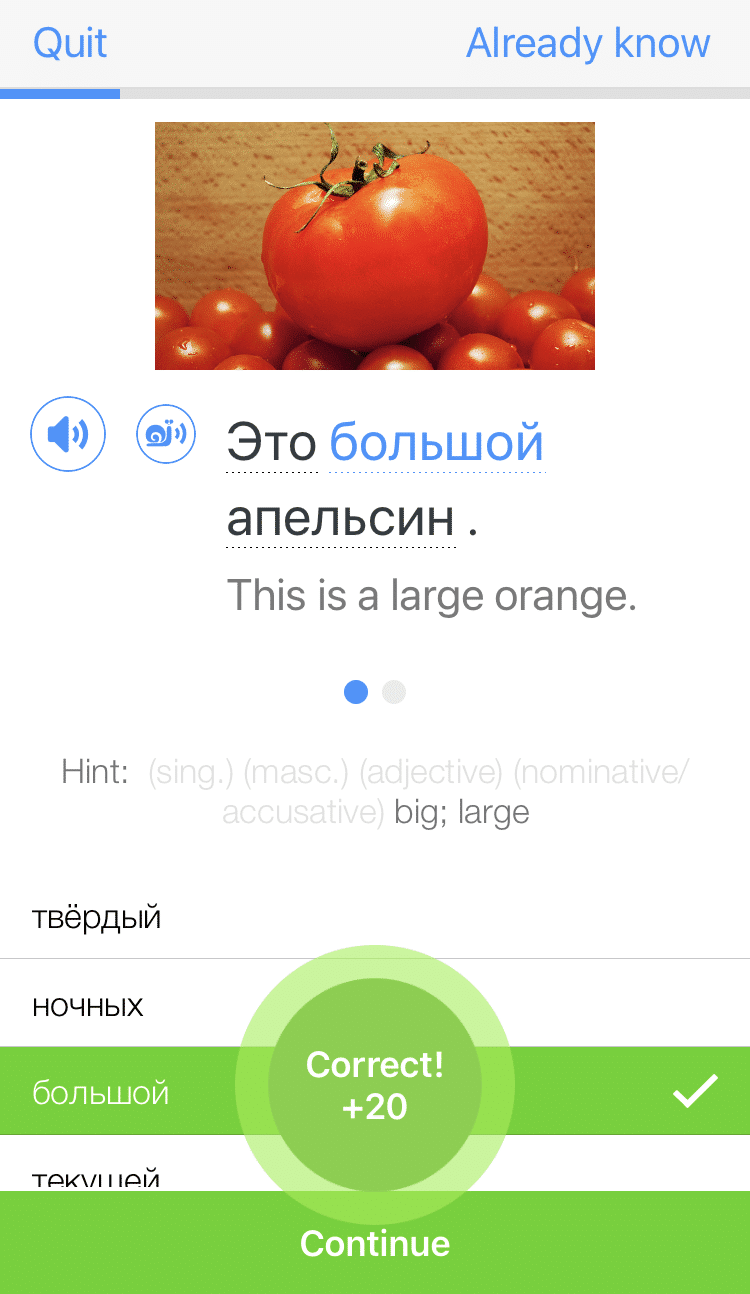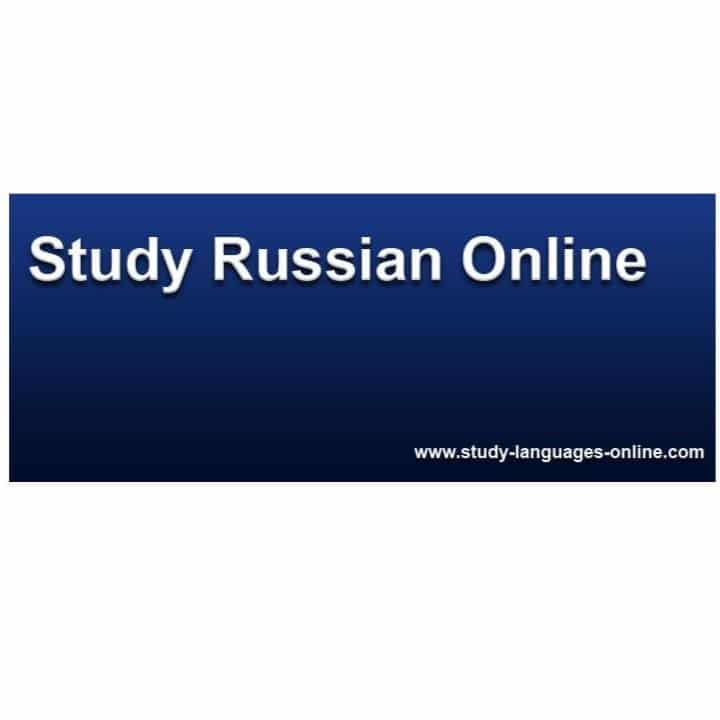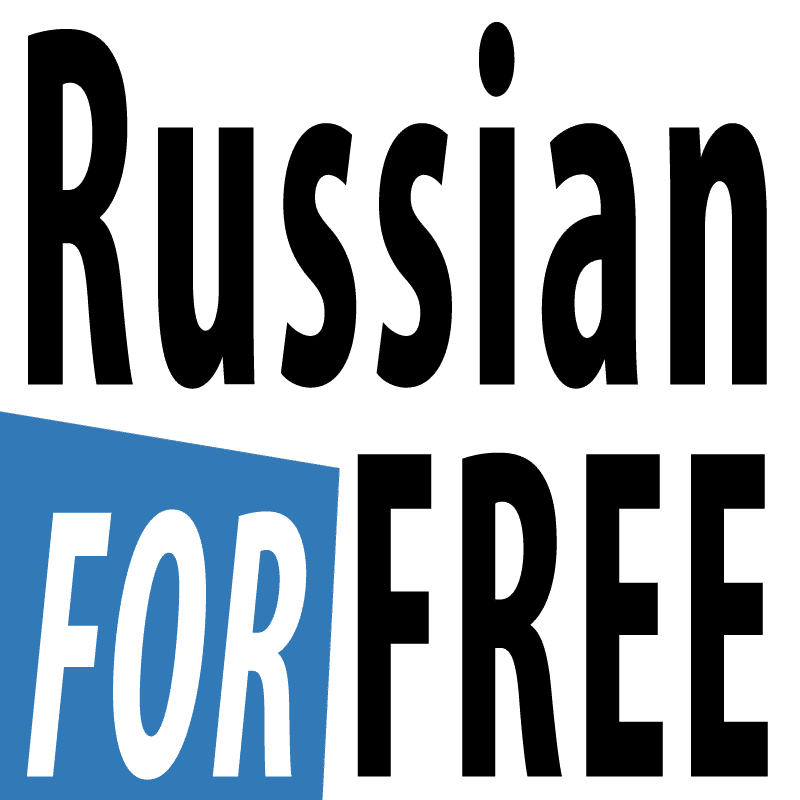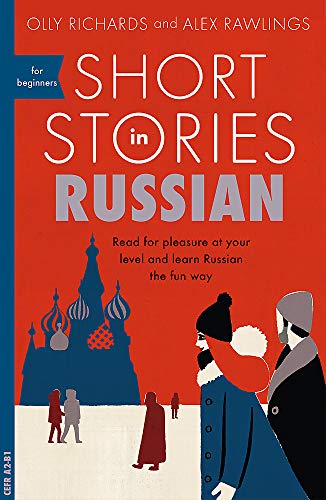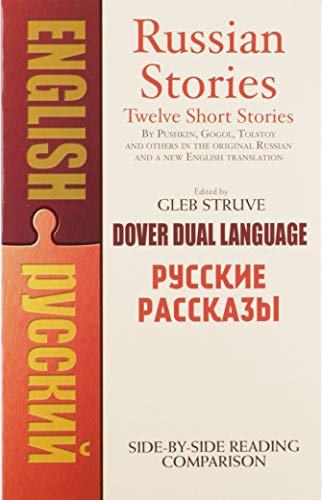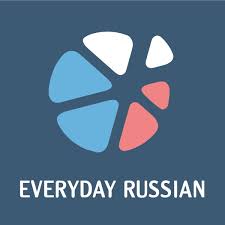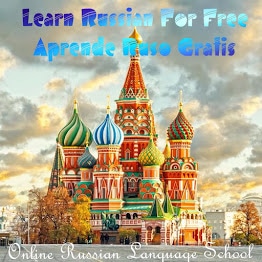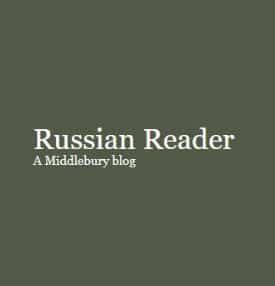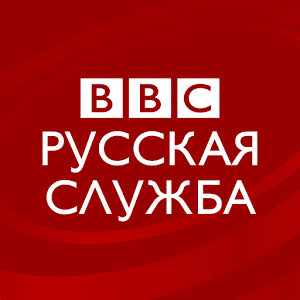
Learn Russian Reading Skills: 16 Resources
Reading in Russian can prepare you to understand native-level material, like menus, signs, news articles and classic Russian novels. However, to get to that point, you’ll need to practice your reading skills first.
Whether you’re just starting out or are an advanced student, these 16 reading resources can help you learn Russian reading skills.
Contents
- Readlang
- FluentU
- Study Russian Online
- Russian for Free: Texts in Russian with Audio
- RussianLessons.net
- College Russian – Learn to Read Russian playlist
- Comics in Russian
- “Short Stories in Russian for Beginners”
- “Russian Stories: A Dual-language Book”
- Everyday Russian Read & Listen Series
- Online Russian Language School
- Russian Reader
- Project Gutenberg
- Вокруг света
- BBC
- TASS
- How to Get the Most out of Russian Reading Practice
- And One More Thing...
Download: This blog post is available as a convenient and portable PDF that you can take anywhere. Click here to get a copy. (Download)
Readlang
Readlang may just be one of the best things to ever happen to students who want to read authentic Russian material.
This web reader is full of great features to help you read, understand and learn from native Russian texts.
Once you’ve installed Readlang, you can click on any word you encounter for a quick translation. This means that you can read real Russian websites even if you don’t know the words. Plus, once you’ve clicked words, Readlang saves them and allows you to practice them using flashcards. How handy is that?
If you don’t have any clue what to read in Russian, Readlang can also help you out with that. It offers a library of Russian-language texts that you can filter by category (fiction, non-fiction, song, conversation, etc.), difficulty level and word count to find an ideal choice for you.
Readlang allows you to create an unlimited number of flashcards and word translations, as well as up to 10 phrase translations per day for free. You can add unlimited phrase translations to the package for a low monthly fee.
Because Readlang is so versatile and can make approaching native-level texts easier, it also pairs nicely with other reading resources. So you might want to keep it in mind as you read the rest of this resource list!
FluentU
FluentU offers a unique form of reading practice. Rather than getting overwhelmed by a full-length book or longer text, you’ll get to read the interactive subtitles and transcripts for video clips from authentic Russian media.
As you watch, you can hover over any word in the subtitles to see its translation, part of speech and a corresponding image.
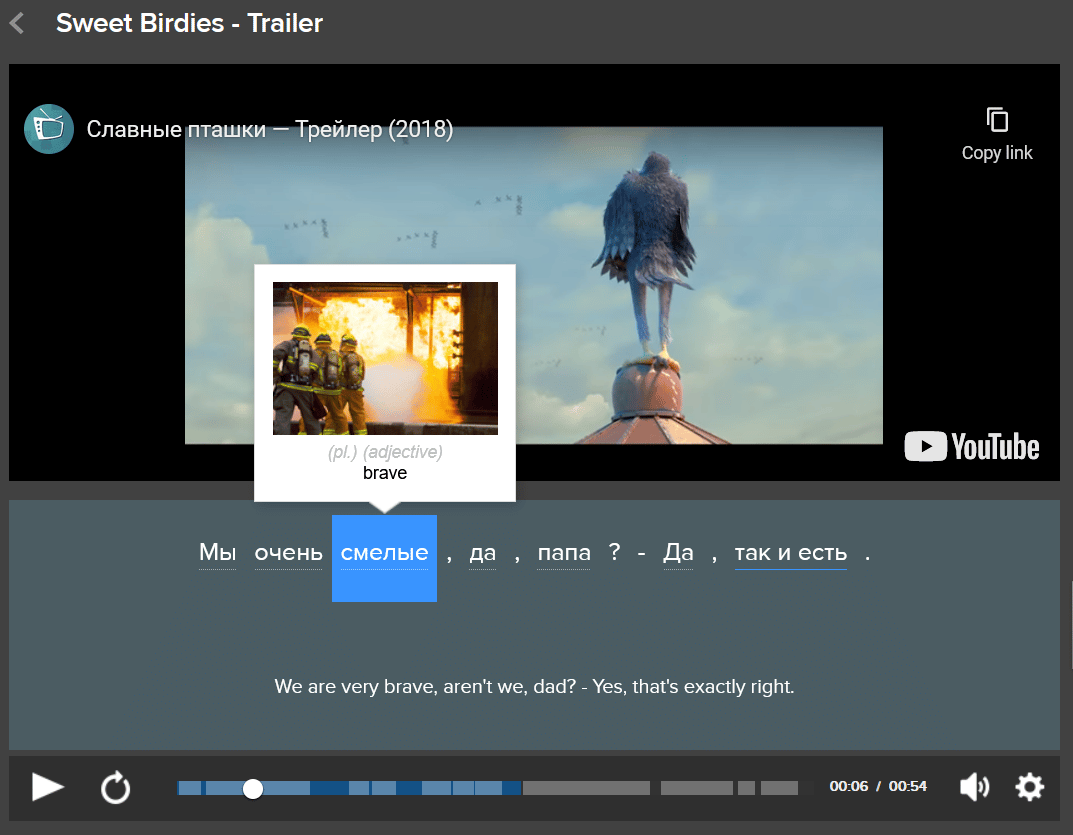
By clicking on a word, you’ll also get example sentences, audio pronunciation and other videos where it’s used. This is much more efficient than stopping your reading practice to look up unfamiliar words in a dictionary or translator.
The video clips—including movie trailers, scenes from TV shows, news segments and more—are organized by difficulty, covering six levels from Beginner 1 to Advanced 2. You can easily find appropriate options for your level and according to your interests.
With the program’s flashcard feature and personalized vocabulary quizzes, you won’t have any trouble reviewing the new words you learn from reading and watching the Russian content.
Study Russian Online
Study Russian Online offers five beginner-level Russian texts designed to help Russian language students learn Russian reading skills. These texts cover basic introductions, Russia, Moscow, Saint Petersburg and Russian food, so you’ll get a nice mixture of vocabulary and relevant information about Russia.
While the texts themselves are great, the best thing about Study Russian Online’s texts is all the support that’s available.
Slow, clear audio is available for each sentence, allowing you to practice listening and pronunciation as you read. Along with the Russian text, you can choose to see stress marks, pronunciation transcription and/or the English translation for each sentence, making it easy to adjust the text to fit your study needs and preferences. You can even choose to highlight stressed vowels, soft consonants, unvoiced consonants and reduced vowels for additional pronunciation guidance.
For complete beginners, you may choose to use all of the pronunciation and translation resources. Upper-beginners may prefer to try reading the text fully in Russian first to test out their skills.
Russian for Free: Texts in Russian with Audio
Russian for Free offers 12 practice texts. There are four for beginners, four for intermediate students and four for advanced learners. Texts cover culture, history and more.
Each text comes complete with audio so that you can read and listen at the same time. Plus, texts appear side-by-side in Russian and English, making it easy to quickly check word meanings. Key vocabulary words appear in blue, and at the end of each text, there’s a vocabulary list of these words, making it easy to study.
RussianLessons.net
RussianLessons.net offers 20 great Russian-language articles that are appropriate for beginning through advanced students. Articles cover Russian culture, history and lifestyle, so you’ll learn about culture as you work on your reading skills.
These articles are a little longer than some practice material, so they’re a good way to transition into reading longer texts. However, there’s still plenty of support to help you along.
English translations appear alongside each paragraph. If you prefer, you can also change the settings to look at just the Russian or just the English. You might try switching between options to see which configuration is most beneficial for your needs and level. You can also listen to Russian audio of each paragraph, giving you some listening practice while you read along.
College Russian – Learn to Read Russian playlist
Like FluentU, the people at College Russian believe videos are powerful tools for learning Russian.
These videos are a little different from FluentU videos, though. FluentU focuses on authentic material, while College Russian’s videos are strictly educational in nature. Its YouTube channel has a terrific playlist to help beginning Russian students learn the basics of reading Russian.
The playlist starts with videos for complete beginners. These videos help you learn the Russian alphabet, so you don’t have to have any prior knowledge of Russian to enjoy this playlist. From there, some basic reading activities are introduced, like reading the McDonald’s menu and nursery rhymes.
Comics in Russian
Love Garfield? Can’t resist a little Dilbert? Russian for Free can hook you up with some of your favorite comic strips in Russian.
Comic strips are great resources for reinforcing your skills. They’re brief, so they aren’t too daunting. Plus, the images can often give you hints if you don’t understand something. And because they’re so entertaining and funny, your Russian reading practice might just be the best part of your day.
Russian for Free makes learning from comic strips easy. While the comic strips are in Russian, below each strip, you’ll also see the Russian text and its English translation. These texts even highlight key words to help you focus on some vocabulary words that might be new to you.
“Short Stories in Russian for Beginners”
If you’d rather enjoy your Russian reading practice with a hard copy book or from the comfort of your Kindle, “Short Stories in Russian for Beginners” could be a great choice.
This book is designed for upper beginners and intermediate Russian students, both young and old. “Short Stories in Russian for Beginners” offers eight short stories that feature the 1,000 most commonly used Russian words. You’ll also have access to plot summaries, a bilingual word list and comprehension questions to reinforce your learning.
“Russian Stories: A Dual-language Book”
“Russian Stories: A Dual-language Book” is another useful option for anyone who prefers a more traditional book.
This book offers dual-language text of 12 short stories. This means you’ll have access to each story in both Russian and English, making it easy to cross reference texts if you struggle to understand the Russian meaning. “Russian Stories: A Dual-Language Book” also offers additional support, like story introductions, linguistic and cultural notes, vocabulary and study questions.
Reading this book is a great introduction to Russian literature, because selections include works by well-known Russian authors, such as Pushkin, Dostoevsky, Gogol, Tolstoy, Chekhov and more.
Everyday Russian Read & Listen Series
Everyday Russian offers a series of great posts that contain Russian texts. Each post contains the Russian text, English translation of the text and audio of the text, making it easy to read along.
Some of these texts include stories, like Chekhov’s “The Lady with the Dog.” Other texts offer information on Russian life, culture and history. For instance, if you’re traveling to Russia, you might benefit from reading “Survival Tips for Foreigners in Russia.”
Online Russian Language School
Here are 24 more texts to add to your reading list! The focus of these texts vary quite a bit, so you’ll find a mixture of fictional tales, inspiring stories and information about famous Russians.
Online Russian Language School offers these online texts designed for Russian students. The texts are entirely in Russian with no English support, so they’re best for intermediate and advanced readers (or to be used in conjunction with a tool like Readlang).
In addition to the text being entirely in Russian, comprehension questions help you reflect on each reading and prompt you to put together Russian sentences to answer the questions, giving you an extra layer of Russian practice.
Russian Reader
Whether you’re a beginning student, an intermediate learner or have advanced-level proficiency, Russian Reader can help you improve your reading skills.
Each reading offers different texts for all levels of students. Beginning students can enjoy a simple retelling of the plot. Intermediate students can read an abridged story. Advanced students can dive into the original text itself, featuring well-known works and folktales.
But the site offers more than great reading material. Key vocabulary words are highlighted in blue, and you can hover over them for English translation. Plus, the site offers additional assignments and outside resources you can use to build on what you’ve learned.
As an added bonus, the site also offers popular poetry that’s well known in Russia. You can use this to practice your reading skills, or memorize some poetry to impress your Russian friends!
Project Gutenberg
Project Gutenberg is a fantastic source for free reading material, and it offers some important Russian works that Russian language students can use to practice their reading skills.
Students can delve into works like Tolstoy’s “Детство” (“Childhood”).
Unlike some resources, however, Project Gutenberg doesn’t have any resources to help English speakers along. Because of this, it’s probably best for advanced readers. However, beginning and intermediate students can also approach it with the help of Readlang or a good translator app.
Вокруг света
Вокруг света (Around the World) is a long-running Russian geographic magazine that provides enjoyable and educational reading options. You can read about food, travel, people, animals, science and more, giving you terrific thematic vocabulary along with your reading practice.
Articles are most appropriate for advanced speakers (or intrepid beginning/intermediate students with additional support).
BBC
The British Broadcasting Corporation, or BBC, offers news sites in a variety of languages, including Russian. That means you can read the latest Russian and international news while brushing up on your Russian reading skills.
Because news stories are intended for well-educated native speakers, they’re definitely at an advanced level. However, with additional support, beginning and/or intermediate students may also attempt to read them.
And whoever reads these articles has a lot to gain. They cover timely, relevant topics, introducing valuable vocabulary along the way. Plus, they use the sort of academic language that anyone working or studying in Russia is likely to encounter regularly.
Not to mention, reading Russian news stories now with whatever support you need will enable you to better understand Russian news if you ever visit Russia down the road.
TASS
TASS is a Russian news agency that also happens to be one of the the largest agencies in the world, so it should come as no surprise that its website offers a massive array of Russian and international news stories.
It’s important to note that TASS is owned by the Russian government, so some of the news may have a pro-Russian bias. However, reading these stories can give you reading practice, news information and insight into messages that the Russian government supports.
An added bonus is that TASS also has an English-language website that features similar stories, so you might be able to read the same basic story in English if you need a little extra support understanding what you read in Russian.
Still, TASS uses advanced vocabulary, so it’s best for advanced Russian students. Beginning and intermediate students who want to practice their reading with TASS should be prepared to work hard, take it slow and use outside resources for additional support.
How to Get the Most out of Russian Reading Practice
It’s not as simple as just picking up a Russian novel and trying to decipher the text. You should take a few crucial steps to get the most out of your reading resources.
Keep a vocabulary list.
Reading provides a great opportunity to learn vocabulary but to effectively study the words you encounter, you’ll need to keep track of them. Maintaining a vocabulary list gives you a helpful study tool that you can use to reinforce the words you’ve read.
Use supportive resources.
As you read, you’re likely to encounter some words or phrases you don’t know. Even if you use context to help you along, there will be some things you just can’t figure out.
Using supportive resources can help you overcome these hurdles and learn from them. Some of the resources on this list come with supportive material, while others don’t. If you choose a resource that lacks additional support, I recommend keeping a Russian translator app or dictionary app handy so that you can quickly look up anything you don’t recognize.
And guess what? Some translator apps work with photos, so you might not even have to type the word to get a quick translation.
Make sure your practice is appropriate for your level.
When reading in Russian, try to read at the right level. If you read material below your level, you probably won’t grow as much as you could. However, if you read material way above your level, you may feel intimidated or overwhelmed. So pull a Goldilocks and find that perfect fit for you!
Include a variety of reading materials.
There’s a wide selection of reading materials out there, including books, short stories, news articles, magazine articles and so much more.
Each type of reading material features different vocabulary and a different style. Incorporating a variety of reading resources into your Russian reading practice will give you broader perspective on the Russian language. While you don’t have to use all 16 of these resources (in fact, please don’t!), choose two or three that fit your learning style.
Target vocabulary sets by finding resources with relevant themes.
Reading for the sake of reading is great, but you can also use your reading practice to target specific vocabulary sets that you want to work on.
To do so, just pay attention to the themes of certain materials to select readings that will incorporate relevant vocabulary. For instance, if you have a business trip to Russia coming up, you could try reading business news articles to work on your vocabulary.
With these 16 Russian reading resources, you can help take your reading abilities to the next level.
Download: This blog post is available as a convenient and portable PDF that you can take anywhere. Click here to get a copy. (Download)
If you love learning Russian and want to immerse yourself with authentic materials from Russia, then I should also tell you more about FluentU.
FluentU naturally and gradually eases you into learning the Russian language and culture. You'll learn real Russian as it's spoken by real Russian people!
FluentU has a very broad range of contemporary videos. Just a quick look will give you an idea of the variety of Russian-language content available on FluentU:
FluentU makes these native Russian videos approachable through interactive transcripts. Tap on any word to look it up instantly.
Access a complete interactive transcript of every video under the Dialogue tab. Easily review words and phrases with audio under Vocab.
All definitions have multiple examples, and they're written for Russian learners like you. Tap to add words you'd like to review to a vocab list.
And FluentU has a learn mode which turns every video into a language learning lesson. You can always swipe left or right to see more examples.
The best part? FluentU keeps track of your vocabulary, and gives you extra practice with difficult words. It'll even remind you when it’s time to review what you’ve learned. You'll have a 100% personalized experience.
Start using the FluentU website on your computer or tablet or, better yet, download the FluentU app from the iTunes or Google Play store. Click here to take advantage of our current sale! (Expires at the end of this month.)
And One More Thing...
